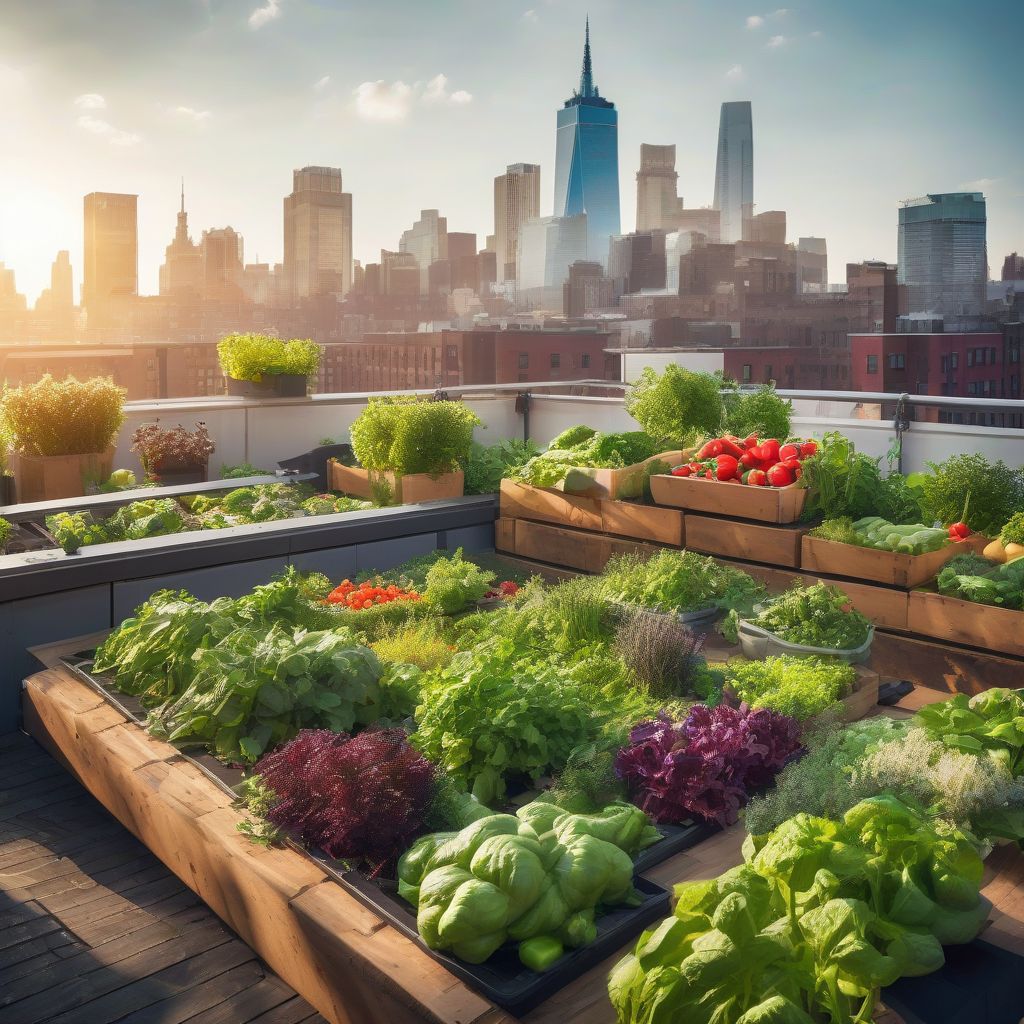Have you ever walked through a concrete-filled city and craved the sight of lush greenery? Yearned for the taste of a sun-ripened tomato, still warm from the vine? In today’s urban landscape, the concept of fresh, homegrown food can feel like a distant dream. But what if I told you there’s a way to reconnect with nature, right in the heart of the city? Organic gardening, once relegated to sprawling countryside farms, is blossoming in urban areas, transforming balconies, rooftops, and empty lots into vibrant green spaces. Let’s dig into why this movement is sprouting up and how it’s changing the face of our cities.
Sowing the Seeds of Change: Benefits of Urban Organic Gardens
Urban organic gardening is about more than just aesthetics; it’s about cultivating a healthier, more sustainable way of life for city dwellers. Here’s how:
1. Greening the Concrete Jungle: Environmental Impact
- Combating Air Pollution: Plants are natural air purifiers, absorbing carbon dioxide and releasing oxygen. In densely populated urban areas, where air quality can be a major concern, organic gardens act as mini oxygen factories, filtering pollutants and improving air quality.
- Reducing the Urban Heat Island Effect: Concrete buildings and paved surfaces absorb and retain heat, making cities significantly hotter than surrounding areas. Urban gardens help combat this “heat island” effect by providing shade and releasing moisture into the air through transpiration.
- Conserving Water: Unlike conventional gardening, which often relies heavily on sprinklers and irrigation systems, organic gardening emphasizes water conservation. Techniques like mulching, rainwater harvesting, and drought-tolerant planting help conserve water resources.
 Urban Rooftop Garden
Urban Rooftop Garden
2. From Garden to Table: Health and Well-being
- Access to Fresh, Nutritious Food: One of the most significant benefits of urban organic gardening is the ready availability of fresh, pesticide-free fruits, vegetables, and herbs. This direct access to healthy produce promotes healthier eating habits and reduces reliance on processed foods.
- Physical Activity and Stress Relief: Gardening is inherently therapeutic. The simple acts of digging in the soil, planting seeds, and tending to plants can provide a welcome escape from the stresses of city life, offering opportunities for physical activity and mental relaxation.
- Community Building: Community gardens are springing up in cities worldwide, transforming vacant lots into social hubs. These shared spaces foster a sense of community, encourage collaboration, and connect people with their neighbors.
3. Economic Empowerment: Growing More Than Just Plants
- Reduced Grocery Bills: Growing your own food, even on a small scale, can lead to significant savings on grocery bills, particularly for fresh produce. This is especially beneficial for low-income communities where access to affordable, healthy food can be limited.
- Entrepreneurial Opportunities: Urban gardening has also sparked a wave of entrepreneurial ventures. From selling surplus produce at farmers’ markets to creating small-batch jams and pickles, city dwellers are finding innovative ways to turn their green thumbs into income-generating opportunities.
Cultivating Your Urban Oasis: Getting Started
Ready to bring a touch of green to your urban dwelling? Here are some tips to get you started:
1. Assess Your Space:
- Sunlight: Most edible plants need at least 6 hours of sunlight daily. Determine how much sun your balcony, rooftop, or yard receives.
- Space: Even a small balcony can be transformed into a thriving garden. Consider vertical gardening techniques, hanging planters, or container gardening to maximize your space.
- Soil: If you don’t have access to in-ground soil, opt for high-quality potting mix designed for urban gardening.
2. Choose the Right Plants:
- Start Small: Begin with easy-to-grow herbs like basil, mint, and parsley. Gradually incorporate vegetables like tomatoes, lettuce, peppers, and leafy greens as you gain confidence.
- Consider Climate: Select plants that thrive in your city’s climate. Research local gardening guides or consult with experts at your nearest nursery.
3. Embrace Organic Practices:
- Natural Fertilizers: Compost kitchen scraps and yard waste to create nutrient-rich fertilizer for your plants.
- Pest Control: Encourage beneficial insects like ladybugs and lacewings, which prey on common garden pests. Use organic pest control methods like neem oil or insecticidal soap if needed.
Reaping the Rewards: A Greener Future for Our Cities
[amazon bestseller=”urban gardening”]
Urban organic gardening is more than just a trend; it’s a movement transforming our cities into healthier, more sustainable, and vibrant places to live. By embracing organic practices, city dwellers are not only growing fresh, nutritious food but also fostering a deeper connection with nature, building stronger communities, and creating a greener, more resilient future for generations to come.
What are you waiting for? Grab your gardening gloves, find a sunny spot, and start planting the seeds of change in your own urban oasis!
